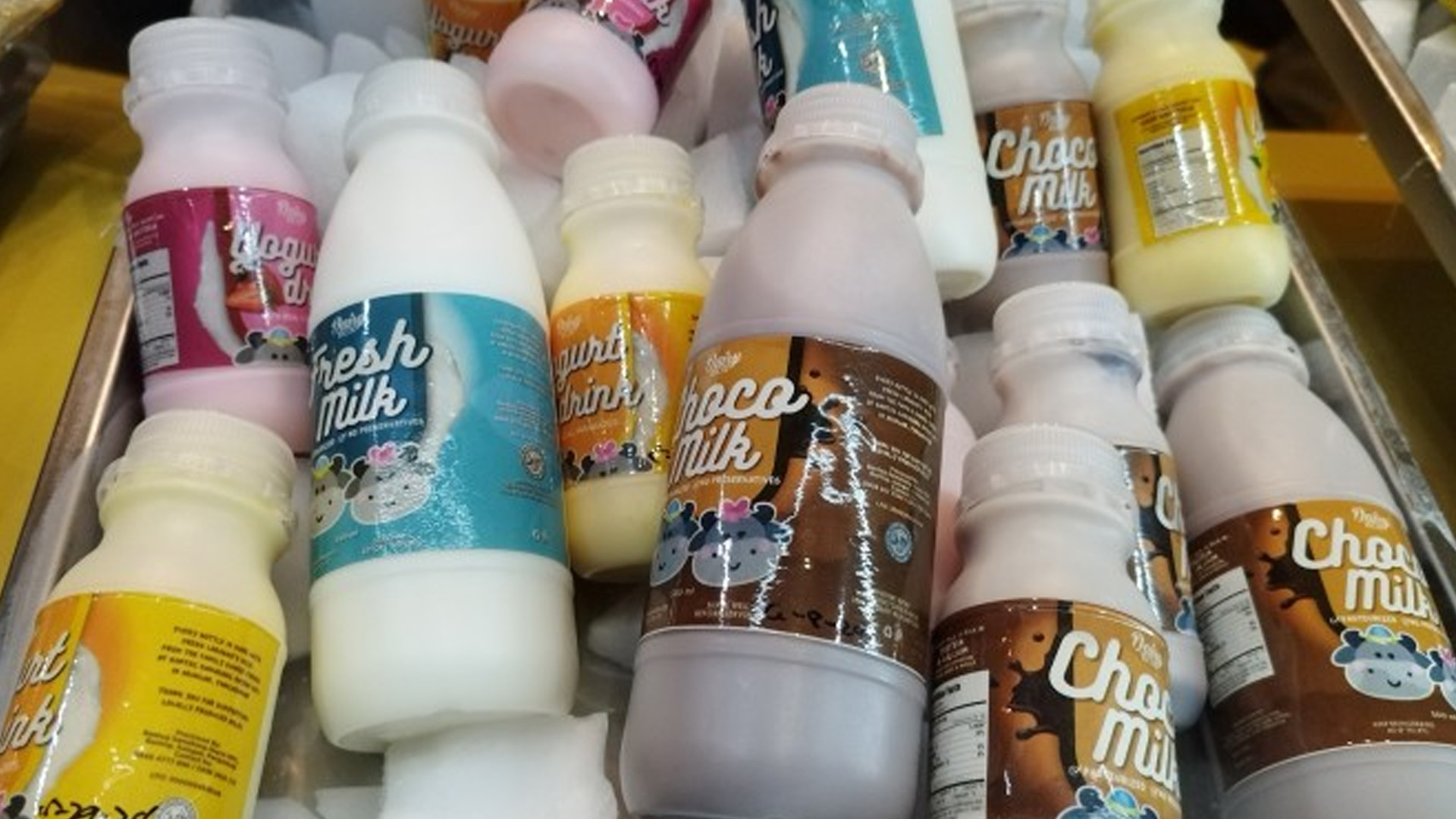The carabao, the country’s national animal, is still relevant amidst the technological innovations, given the growing industry for carabao milk and other related products.
The industry is seen to be a solution to poverty and hunger in the countryside.
Thus, the Department of Agriculture (DA) is revitalizing the cultivation of Philippine carabaos nationwide to help generate income in the countryside and support the Marcos administration’s dairy nutrition program.
“Raising carabaos on a commercial scale offers Filipino farmers fresh livelihood opportunities. It also makes it possible to locally produce the milk needed for the President’s milk feeding program for children,” DA Undersecretary Deogracias Victor Savellano said in an interview Monday.
The milk feeding program is in accordance with Republic Act (RA) 11037, or the Masustansyang Pagkain para sa Batang Pilipino Act, which aims to address undernutrition among Filipino children through national feeding program in schools.
Carabao milk is said to be more nutritious than cow’s milk since it has higher calcium and lower cholesterol content.
Savelllano said DA’s Philippine Carabao Center (PCC) has been tasked to lead the effort, initially by repopulating the country’s stagnant carabao population.
PCC Director Caro Salces said surveys by the Philippine Statistics Authority (PSA) indicated that the country’s carabao population ranges from 2.7 million to 2.9 million as of September last year.
However, Salces estimated that only 30,000 to 50,000 of those animals are suited for commercial milk production.
In Pangasinan, the Department of Social Welfare and Development (DSWD) launched the Gatasang Kalabaw Kontra Kagutoman at Kahirapan (GK3K) on April 27.
Under the program, about 300 indigent families have been chosen to benefit from the Sustainable Livelihood Program (SLP) in Balungao, Pangasinan.
The groups received PHP4.6 million seed capital, which will be used for the carabao-breeding and carabao milk production in the first year of implementation of the project; and carabao milk, hide, and meat processing in the second year.
The local government of Balungao provided 10 hectares for carabao housing, forage area and vegetable production site, as well as other logistics and essential materials amounting to PHP4 million.
“Ang layunin po ng program na ito ay mapababa and kagutuman at kahirapan. Ang nutrition ng mga bata ay mahalaga habang lumalaki sila (The program aims to end hunger and poverty. The children’s nutrition is very important while they are growing up),” Department of Social Welfare and Development-Ilocos Region personnel Myla Ramos said.
The PCC-Don Mariano State University also provided specialized training to the beneficiaries, as well as additional carabaos and artificial insemination.
In turn, the Department of Trade and Industry (DTI) pledged to provide equipment for milk production through its Shared Service Facility program.
While the project on carabao milk and meat processing is just beginning in some areas, members of the Bantog Samahang Nayon Multi-purpose Cooperative (BSNMC) in Asingan town are now benefiting from the result of their 30 years of commitment to the carabao industry.
Roweno Dingal, vice chairman of the BSNMC, said he could not believe what he has earned since he started to actively join the cooperative back in 2018, after he quit his job at a hotel in Metro Manila due to the pandemic.
“Ngayon lang kami nakakita na may kumikita ng PHP100,000 sa isang buwan dahil sa paggagatas ng kalabaw (This is our first time to see somebody earn PHP100,000 in a month from carabao milk),” he said.
Dingal personally got himself his own car.
In 2023, members of the cooperative received their dividends after years of allotting it as capital of their organization.
BSNMC chairman Rolly Mateo Sr. said some of the members received over PHP1 million to PHP2 million dividend.
Mateo said through the carabao industry, he was able to send his six children to finish their studies.
One of his children is now a graduate of law while two are finishing their veterinary courses in college.
The cooperative has even hosted the first the three-day Kalabaw Food Festival in Barangay Bantog Asingan town last April 19.
BSNMPC’s latest achievement is the construction of a PHP10.5-million building and warehouse on a six-hectare land it procured from its earnings.
Its officials plan to have their own housing project for their members and their own resort in the near future.
“We would like to encourage our kababayans (townmates) to try dairy production to elevate their livelihood,” Mateo said in Filipino.
He said the success of their cooperative is also a product of the whole-of-government approach since different national government agencies have been helpful to them.
Among the agencies that help them include the PCC, DTI, Department of Labor and Employment, Department of Agrarian Reform, Department of Education, and DSWD.
The cooperative has a total of 500 carabaos, 80 of which are in milking stage and producing 180 to 200 liters of carabao milk daily.
It targets to increase production to 500 liters a day.
Aside from fresh milk, the other products that the cooperative sell are yogurt (mango, strawberry, blueberry, and chocolate flavors), corn-flavored ice cream, pastillas (milk candies), polvoron (crumbly dessert made of milk and sugar).
The cooperative will also venture into male carabao meat production within this year.
Asingan town Mayor Carlos Lopez Jr. said the success of the dairy production industry in their town through the BSNMPC started during the pandemic.
“A truckload of carabao milk was distributed to the residents since they cannot sell it due to the lockdowns but through social media, they were made known to national government agencies like the DSWD and DepEd, which provided them contracts for their feeding programs,” he said in Filipino.
Earlier, the cooperative secured a contract with the DepEd-Pangasinan II Schools Division to supply some 52,250 packs (200 milliliters each) of carabao fresh milk and milky buns to institutions under its jurisdiction.
The provincial government also ordered products from the cooperative last year for the supplemental feeding of undernourished children.
“It was like a dream come true for us,” Mateo said. (PNA)








